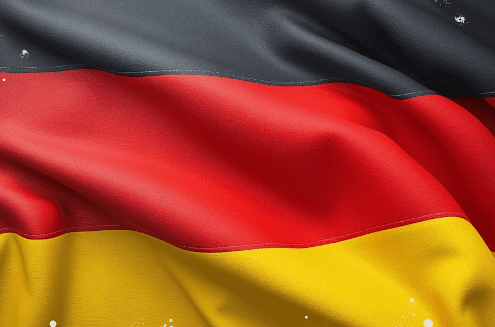In a pivotal move following the collapse of the governing coalition, Germany’s Social Democratic Party (SPD) has extended an offer to the Christian Democratic Union (CDU) to hold discussions regarding an early vote of confidence. This comes on the heels of significant political turbulence in Germany, where the coalition between the SPD, the Greens, and the Free Democratic Party (FDP) has unraveled, casting doubt over the stability of the current government led by Chancellor Olaf Scholz.
Background: The Fall of the Ampel Coalition
The “Ampel” coalition, named for the German word for traffic light due to the party colors (red for SPD, yellow for FDP, and green for the Greens), was formed in 2021 as a progressive alliance aimed at addressing Germany’s socio-economic and environmental challenges. The coalition originally promised a transformative agenda with ambitious policies on climate change, digitalization, and economic reform. However, deep ideological divides among the coalition partners have increasingly hindered policy-making and eroded trust within the alliance.
Recent policy disagreements over economic strategies, energy transition, and immigration reform have brought these tensions to a head. The FDP’s departure from the coalition last week led to the government’s current precarious position, as the SPD and Greens no longer have enough seats to govern without support from other parties. This has prompted the SPD to seek talks with the CDU, Germany’s main conservative opposition party, in a bid to find a stable path forward.
The SPD’s Proposal and CDU’s Initial Response
The SPD’s offer to engage in discussions with the CDU signals a willingness to explore avenues for continued governance, even if that means ceding ground to conservative elements. By proposing a confidence vote, the SPD aims to determine whether the current government still has the parliamentary support required to carry out its legislative agenda. If successful, such a vote could provide the government with a temporary mandate to continue ruling until the next federal election.
The CDU has responded cautiously to the SPD’s proposal, emphasizing that it will prioritize stability and governance over partisanship. CDU leader Friedrich Merz acknowledged that the CDU is open to preliminary talks but stressed that his party is not committed to propping up the current administration. He noted that any cooperation with the SPD would be contingent on significant policy concessions and a commitment to addressing issues that matter to CDU voters, particularly economic stability, energy policy, and security.
Possible Outcomes of a Confidence Vote
An early vote of confidence could lead to several potential outcomes:
- SPD and CDU Agreement: If the SPD and CDU reach an agreement, it could result in a new arrangement that allows the current government to continue, with CDU support for specific policies. This option would provide temporary stability but could require the SPD to compromise on progressive policies.
- New Coalition Formation: Another scenario is the formation of a grand coalition between the SPD and CDU. Though such coalitions have been historically challenging due to ideological differences, they have previously governed together in times of crisis. However, a grand coalition might limit the SPD’s ability to pursue progressive reforms.
- Snap Elections: If the confidence vote fails, snap elections would be a likely outcome. This could lead to a major reshuffling of the German political landscape, with the possibility of new alliances and shifts in voter support. Both the SPD and CDU would face risks, as they could lose seats to smaller parties, such as the AfD (Alternative for Germany) and the Greens, who have been gaining momentum on specific issues.
- Minority Government: Another possibility is that the SPD, with limited support from the CDU or other parties, could attempt to form a minority government. This option, while uncommon in German politics, would require the SPD to seek support on a case-by-case basis for each legislative decision, making it challenging to implement any long-term agenda.
Challenges Facing the SPD
For Chancellor Scholz and the SPD, the coalition breakdown and potential confidence vote pose significant challenges. The SPD’s popularity has waned in recent months due to criticism of its handling of inflation, immigration, and energy reform. Scholz now faces the difficult task of maintaining his party’s progressive values while securing the cooperation necessary to govern effectively.
The SPD’s overture to the CDU has raised concerns among some members of the Greens and the SPD’s left-leaning base, who fear that any deal with the CDU could compromise key progressive policies. Environmental advocates, for example, worry that CDU influence might stall Germany’s climate agenda, while others fear that conservative fiscal policies could reduce funding for social welfare programs.
Implications for Germany and Europe
The outcome of these discussions will have implications not only for Germany but for the broader European Union. As the largest economy in Europe, Germany plays a pivotal role in shaping EU policies on economic stability, climate action, and security. A prolonged period of political instability could weaken Germany’s influence within the EU and disrupt coordinated efforts on pressing issues, such as managing energy resources amid fluctuating global prices and maintaining unity on EU foreign policy.
Furthermore, with populist and far-right parties gaining traction in several European countries, Germany’s political stability is seen as a bulwark against fragmentation within the EU. A snap election could potentially bolster right-wing parties in Germany, particularly the AfD, which has recently made gains with its criticism of immigration policies and EU regulations.
Conclusion
As the SPD initiates talks with the CDU regarding a potential confidence vote, Germany’s political future hangs in the balance. The decision will not only impact the immediate stability of the current government but also shape the direction of German policy on critical issues affecting Europe as a whole.
The coming days will be decisive as the SPD and CDU negotiate their terms, with the results likely setting a new course for German politics and influencing the broader trajectory of European governance.





